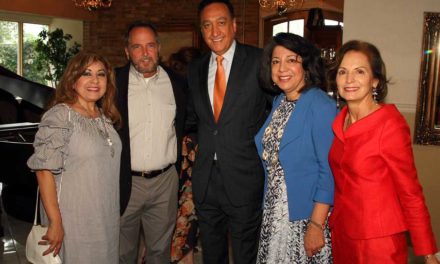As the richest country on earth, one must wonder why we have the highest poverty, infant mortality, incarceration, and lowest life expectancy rates in the world out of other developed countries. Is poverty, as Nelson Mandela said to the United Nations in 2013, “like slavery and apartheid…not natural (but) man-made”? And can it be “overcome and eradicated by the actions of human beings…not as a task of charity, (but as) an act of justice?” This is a question that can continue to be pondered for thousands of years, but it needn’t be. There are solutions that we should proactively pursue now that can benefit people immediately, such as the concept of Universal Basic Income (UBI), the progressive economic theory that proposes providing workers with a monthly stipend that supplements their income and can potentially alleviate or at best, abolish poverty and needless suffering.
UBI picks up where the industrial revolution (the period of transition from hand production methods to manufacturing processes using machines in factories in Europe and the US, from about 1760 to around1820-1840) left off, where during that productive time of worker’s history, laborers were promised that they too would reap the benefits of the heightened manufacturing processes (that they were a part of creating) that would make work more efficient). In theory, this was supposed to give workers more free time, according to the so-called “Father of Economics” John Maynard Keynes, who was certain the real purpose of economic growth is to free people from work, not to encourage people to keep working harder and harder in pursuit of capital – yet that is exactly what has happened. Today, people are working harder for less, working multiple jobs to live a substandard existence – and barely surviving, let alone thriving.
Wages have stagnated and have not kept up with inflation. People are being forced to do more with less and add to this the that we are at the cusp of a “technological revolution” we are not prepared for that will most certainly impact the jobs and livelihoods of Americans. A 2013 Oxford Study tells us that 47% of jobs in the US are at risk of being eliminated due to software, robotics, machines, and other learning and artificial intelligence…and not just for repeatable task jobs – so-called “white collar jobs” are next. Job leaders aren’t shying away from their intentions either, with a recent Harvard Study showing that 46% of alumni would rather invest in technology such as driverless cars and other automation rather than human workers. This makes sense considering approximately 45% of all activities that workers take on in the US economy can be automated using available technologies, with only 4% of work activities requiring creativity above a median human level, 29% of work activities requiring sensing emotions above a median human level, all of which suggest those activities that are safe from automation are relatively rare (Stern, Andy. “Raising the Floor: How a Universal Basic Income Can Renew Our Economy and Rebuild the American Dream”, Public Affairs, 2016, 65). However, I was surprised to find out that 65% of Human Resources tasks, which I had thought needed the “human touch” can be computerized (Stern, Andy. “Raising the Floor: How a Universal Basic Income Can Renew Our Economy and Rebuild the American Dream”, Public Affairs, 2016, 122). Also startling is the fact that we are only 5 to 10 years away from automated truck driving, which is the most popular job in 29 states, accounting for 3.5 million jobs. And since job statistics are not gauged until they happen, informed workers can only brace for the changes that lie ahead and how they will impact their livelihoods. (As Henry Ford once said, “Why do I always get the whole person when all I want is a pair of hands?”).
Because of scenarios like these, pilots are being conducted in places like British Columbia, India, Italy, Africa, Scotland, the Netherlands, and Spain and even stateside in California, Hawaii, and Alaska, which have a “permanent fund”, that has been supplementing the incomes of its citizens for years. The piloting of new economic programs that serve people, such as the universal basic income program, which works by providing every adult a monthly stipend of an agreed upon amount, that is only a supplement to their income, not a replacement, but substantial enough that it can help alleviate some financial problems, pay for or free up time for childcare, caregiving, volunteering, spur entrepreneurship, encourage creativity and generally help people enjoy their time on earth a bit more, is a beautiful concept, and one that must be explored.
As one of the most beloved proponents of universal basic income once said as part of his “Poor People’s Campaign”, expressed in his 1967 book Where Do We Go From Here: Chaos or Community “I am now convinced that the simplest approach will prove to be the most effective – the solution to poverty is to abolish it directly by a now widely discussed measure – the guaranteed income…The contemporary tendency in our society is to base our distribution on scarcity, which has vanished, and to compress our abundance into the overfed mouths of middle and upper classes until they gag with superfluity. If democracy is to have a breadth of meaning, it is necessary to adjust this inequity. It is not only moral, but it is also intelligent. We are wasting and degrading human life by clinging to archaic thinking. The curse of poverty has no justification in our age. It is socially as cruel and blind as the practice of cannibalism at the dawn of civilization when men ate each other because they had not yet learned to take food from the soil or to consume the abundant animal life around them. The time has come for us to civilize ourselves by the total, direct and immediate abolition of poverty.”
For more information on universal basic income, please visit https://basicincome.org/basic-income/.










